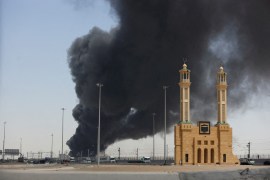Yemen: Peace at last?

By Bruce Riedel
The United Nations-brokered cease-fire in Yemen appears to be holding, pausing for now 7 several years of war. The truce displays the equilibrium of power on the floor: The Zaydi Shia Houthi rebels manage Sanaa and most of northern Yemen they are on stability the victors. The rest of the state is divided into ministates. Iran has secured a foothold on the Arabian Peninsula.
The Houthis and Saudi Arabia agreed late last 7 days to a two-month-lengthy cease-fire coinciding with the Muslim holy thirty day period of Ramadan. The truce can be extended by mutual consent. The Saudi blockade of gasoline imports is lifted. The first ship has unloaded in Hodeida harbor. This will aid the delivery of food stuff, medications, and other assistance to the Yemeni people. The blockade of Sanaa airport is lifted to allow for a handful of industrial flights a 7 days, apparently to Cairo and Amman.
United Nations negotiators, led by Exclusive Envoy Hans Grundberg of Sweden, are worthy of credit history for the to start with stop-fire agreement given that the second yr of the conflict in 2016. Grundberg formulated a “framework” for the discussions which efficiently ignores the present U.N. Safety Council resolutions which contact for Houthi disarmament and territorial surrender. The Houthis had declared a short unilateral cease-hearth prior to the U.N. agreement. They look extra open up to a truce with partial blockade relief than in the previous.
U.S. President Joe Biden welcomed the agreement publicly. His assertion offers credit history to the U.N. and to Oman, as effectively as to the Saudis and the Yemeni govt. The Omanis have facilitated contact with the rebels. Omani Sultan Haitham is next in the footsteps of his illustrious predecessor Qaboos as a proficient diplomat trying to get to lower regional tensions.
The Biden administration reversed the Trump administration coverage of total and uncritical assistance for Saudi Arabia’s intervention in Yemen, which experienced been a delusional slip-up. A 12 months back Biden publicly termed for an conclusion to the war and suspended some offensive navy support to the Saudis, but not plenty of to satisfy critics in Congress. Opposition on Capitol Hill to ongoing American support to the kingdom resonated powerfully in Riyadh and aided protected the cease-fireplace. Biden’s refusal to offer with Crown Prince Mohammed bin Salman has had a lot more influence on the Saudis than often portrayed it obviously rankles the prince who is the architect of the disastrous war in Yemen. Biden should stand firm on his situation.
The stop-fireplace leaves the Houthis in possession of the missiles and drones they have used to bombard Saudi and Emirati metropolitan areas and energy infrastructure. The Saudis have belatedly recognized that they cannot stop the strikes and that they undermine trader confidence in the kingdom. The Emiratis by now arrived to that conclusion before this 12 months.
Iran is a beneficiary of the truce. Tehran has a foothold on the Arabian Peninsula overlooking the strategic Bab el-Mandab Strait involving the Purple Sea and the Indian Ocean. The Houthis are fiercely independent and are not managed by Iran. But they are significantly closer to Tehran and specifically the Islamic Revolutionary Guard Corps than they ended up seven decades in the past at the outset of the Saudi intervention.
The stop-fireplace is fragile. It could collapse with little or no warning. There are a number of spoilers in the nation which includes al-Qaida, impartial warlords, and many others who want the war to keep on. The challenge of changing the truce to a political approach is massive. It may perhaps be wiser to focus on limited techniques, for case in point much more flights from Sanaa for health care evacuations. The top rated priority is lengthen the stop-fireplace indefinitely.








